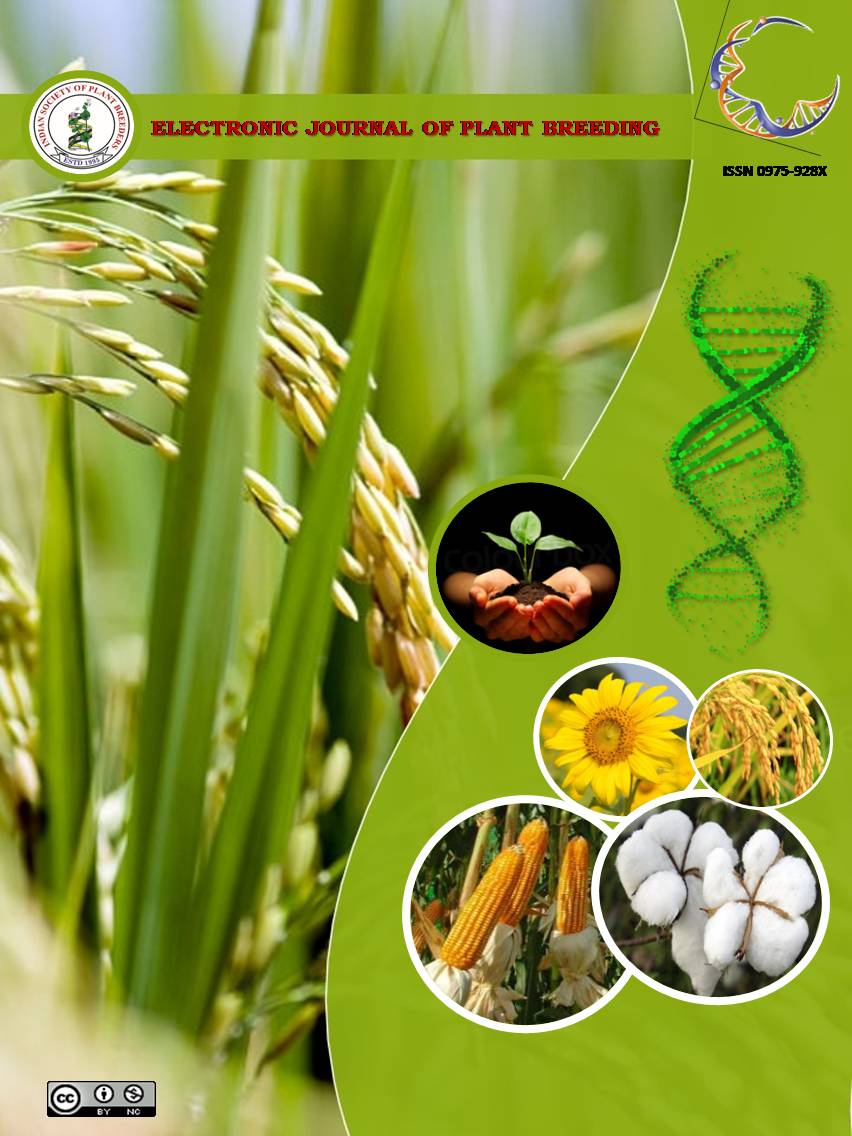Genetic variability and multivariate analysis in sorghum (Sorghum bicolour) under sodic soil conditions
Abstract
A field study was conducted using 31 sorghum landraces and two improved varieties as yield checks under natural sodic soil conditions at Anbil Dharmalingam Agricultural College and Research Institute, Trichy during Kharif,2018. The study was aimed to assess the mean performance, genetic variability, heritability and diversity of key traits that would aid the selection of genotypes for sodicity tolerance. The experiment was laid out in randomized block design with two replications. Eight biometric traits viz., days to 50 percent flowering, plant height, number of tillers, number of leaves, leaf length, leaf width, panicle length and yield per plant were observed. The genotype ES1 was identified to be sodicity tolerant as it based on its overall per se performance. Based on PCA analysis, the characters panicle length, number of leaves and yield per plant were identified to contribute more towards the total divergence. These traits also showed higher PCV and GCV coupled with higher heritability and genetic advance as percent of mean. Hence, indirect selection for sodicity tolerance can be carried out through these traits for selection of genotypes with sodicity tolerance. Cluster analysis revealed the diverse genotypes (Cluster I and VI) that could be used in hybridization programmes for exploiting the maximum heterotic potential.

It is certified that:
- The corresponding author is fully responsible for any disputes arising due to the publication of his/her manuscript.
- The article has been seen by all the authors who are satisfied with its form and content.
- The sequence of names of authors in the by-line is as per their relative contribution to this experiment, giving due credit to all scientists who made notable contribution to it.
- All the authors fully understand that inclusion of any other co-authors or exclusion of any co-authors is not possible once the article has been submitted to the journal.
- The corresponding author takes full responsibility for this article.
- The address of the organization where the research was conducted is given.
- The article is exclusive for this journal, and the results reported here have not been sent (and will not be sent during its consideration by this journal) for publication in any other journal.
- Authors agree to abide by the objective comments of referees and do agree to modify the article into a short note as per the recommendation, for publication in the Electronic Journal of Plant Breeding.
- If published in Electronic Journal of Plant Breeding, the copyright of this article would vest with the Indian Society of Plant Breeders, who will have the right to enter into any agreement with any organization in India or abroad engaged in reprography, photocopying, storage and dissemination of information contained in it, and neither we nor our legal heirs will have any claims on royalty.


